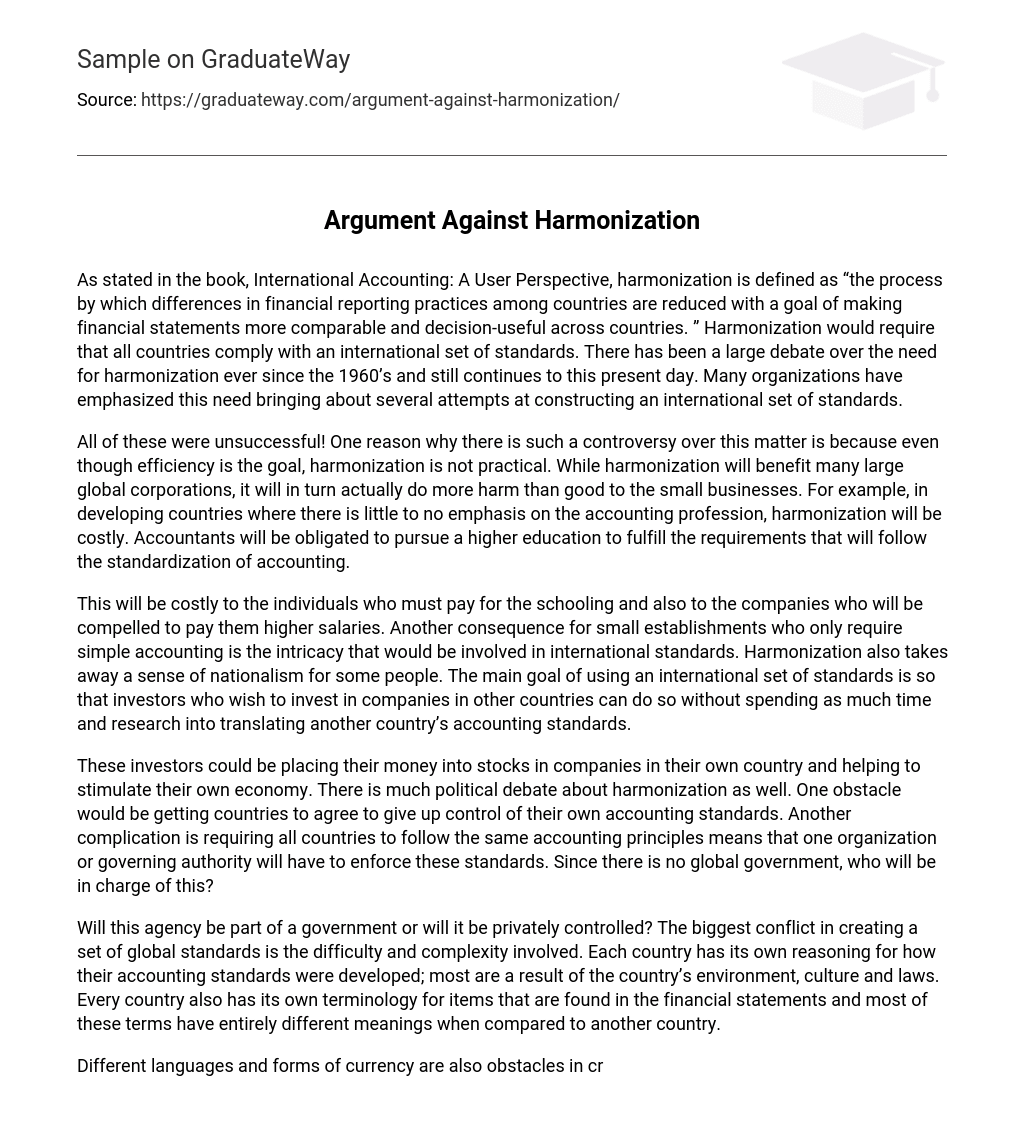As stated in the book, International Accounting: A User Perspective, harmonization is defined as “the process by which differences in financial reporting practices among countries are reduced with a goal of making financial statements more comparable and decision-useful across countries. ” Harmonization would require that all countries comply with an international set of standards. There has been a large debate over the need for harmonization ever since the 1960’s and still continues to this present day. Many organizations have emphasized this need bringing about several attempts at constructing an international set of standards.
All of these were unsuccessful! One reason why there is such a controversy over this matter is because even though efficiency is the goal, harmonization is not practical. While harmonization will benefit many large global corporations, it will in turn actually do more harm than good to the small businesses. For example, in developing countries where there is little to no emphasis on the accounting profession, harmonization will be costly. Accountants will be obligated to pursue a higher education to fulfill the requirements that will follow the standardization of accounting.
This will be costly to the individuals who must pay for the schooling and also to the companies who will be compelled to pay them higher salaries. Another consequence for small establishments who only require simple accounting is the intricacy that would be involved in international standards. Harmonization also takes away a sense of nationalism for some people. The main goal of using an international set of standards is so that investors who wish to invest in companies in other countries can do so without spending as much time and research into translating another country’s accounting standards.
These investors could be placing their money into stocks in companies in their own country and helping to stimulate their own economy. There is much political debate about harmonization as well. One obstacle would be getting countries to agree to give up control of their own accounting standards. Another complication is requiring all countries to follow the same accounting principles means that one organization or governing authority will have to enforce these standards. Since there is no global government, who will be in charge of this?
Will this agency be part of a government or will it be privately controlled? The biggest conflict in creating a set of global standards is the difficulty and complexity involved. Each country has its own reasoning for how their accounting standards were developed; most are a result of the country’s environment, culture and laws. Every country also has its own terminology for items that are found in the financial statements and most of these terms have entirely different meanings when compared to another country.
Different languages and forms of currency are also obstacles in creating a standard set of principles. In conclusion, there are many arguments against harmonization. The ones discussed here are the many unsuccessful attempts, the fact that it is neither truly valuable nor practical, the harm it could do to small businesses, the investments it would take away from domestic economies, the problem of deciding a governing authority and the overall complexity of creating the standards. These all prove the uselessness of current efforts towards harmonization.





